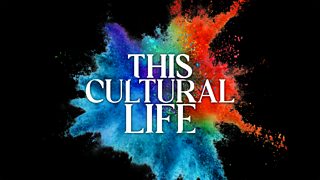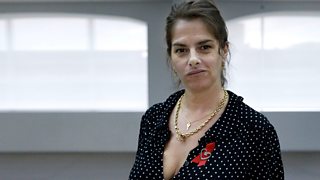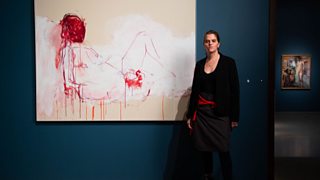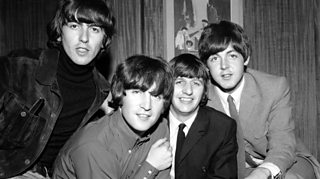Tracey Emin: Nine things we learned from her This Cultural Life interview
Tracey Emin is one of Britain’s most successful living artists. She first gained fame in the 1980s, becoming part of the Young British Artists movement. Her career has not slowed down since. On This Cultural Life Tracey tells interviewer John Wilson about the cancer diagnosis that almost ended her life but led to her becoming happier, her friendship with her hero David Bowie, and why she wishes she’d said yes to Only Fools And Horses. Here are nine things we learned.
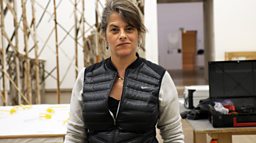
1. Tracey once had to live in a squat with her mum
I made this whole world out of rubbish... Being able to turn nothing into something shows a strong creative ability.Tracey Emin
Emin grew up in Margate. Her dad had two families and would spend half the week with Emin and her mum, and the other with the woman he was married to. Her dad, a Turkish immigrant, owned a hotel, which was successful until recession devastated it. “My dad lost everything. Absolutely everything,” she says. “And my mum, not being married to my dad, lost everything too.” Her dad didn’t help them, so Tracey and her mum wound up squatting in a cottage. “My mum then went from owning a hotel to working in a hotel,” says Emin. “She was a chambermaid.” Emin says the realisation that they had nothing was devastating, but “I was always creative and I think I sort of immersed myself into making things.” Her artistic life began with making dolls’ houses out of anything she could find. “I made this whole world out of rubbish,” she says. “Being able to turn nothing into something shows a strong creative ability.”
2. She lied to get into art college
Emin dropped out of school when she was 15 and moved to London. She met people who were at art college, which was not an option for her as she had no qualifications or money. She applied for an art foundation course at Medway College of Design, claiming she had O-levels, and got in, but was found out when the college asked for her O-level certificates. “I couldn’t lie,” she says. “I could lie on paper but not to their faces.” Emin was carrying some clothes she’d made herself “and they said, ‘Would you like to do fashion?’… It certainly seemed better than nothing. Actually, it wasn’t. I hated it. I was really useless at fashion.” She eventually made her way to Maidstone College of Art, despite turning up for her interview two days late. “I loved and cherished every single moment of it. And I excelled… My first qualification was a first-class degree.”
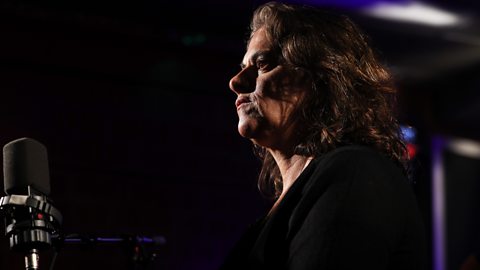
Tracey Emin: "I think I've been overlooked."
A clip from This Cultural Life: Tracey Emin.
3. She stopped painting after having an abortion
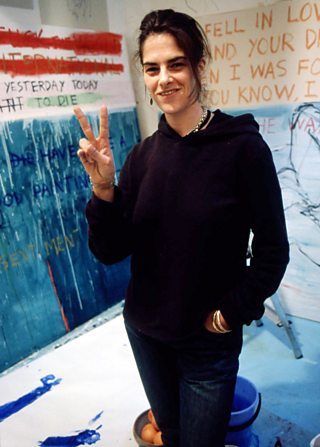
Emin fell in love with painting when she was a student. The first painting she ever really loved was Pink and Yellow, by Mark Rothko. When she saw it at the Tate Modern, she was so moved that she “sobbed and sobbed”. Emin was a painter herself, but she gave it up when she became pregnant, shortly after leaving college. “I couldn’t stand the smell of oil paint,” she says. “It made me feel really sick. I stopped painting.” She had an abortion and says it’s this that stopped her returning to painting until many years later. “I had such guilt. As a deranged punishment to myself I stopped painting. I just couldn’t paint any more.” She smashed all her paintings and put them in a skip. “It took me years and years and years to offload the guilt of the abortion. It was only when I was really successful and when I started to get to the age where I was far too old to have children that I started really painting again.”
4. She was diagnosed with cancer when she was at her happiest
Emin tells Wilson that “every time in my life I say ‘I’m so happy’ something awful has happened”. Last year, Emin was very happy. She had recently fallen in love. “I was sitting on my roof, with my feet cocked up on the slates, and I thought, ‘God, I’m so happy’. Then a few weeks later I’m diagnosed with almost terminal cancer.” Emin was told she had bladder cancer, which required a major operation. Chemotherapy would not work on this cancer, so the only option was to remove all of it. It worked. Emin says she doesn’t believe she would have made it through if she wasn’t in love. “If I hadn’t felt love I would have just floated off,” she says.
5. Coming close to death has made her happier
Emin says she is not scared of death. She accepted that her cancer would probably end her life. “I thought, ‘I’m probably going to die by Christmas. Let’s put that over there and just get on with living. I’ve become even more happy. I’ve become almost slightly enlightened.” She says that accepting death made life more positive. “It meant I didn’t have to fight death, which meant I could concentrate [on life]. If you’re drowning, try to relax as much as possible, because you’ll float to the top. If you fight against it and panic, you’ll swallow water and drown. That’s what I did. I thought ‘I’m probably going to die’… and I just popped back up to the surface.”
6. She feels overlooked
I think people didn鈥檛 understand the seriousness of my work over the last 20 years. I think they just thought I was some sort of narcissistic, deranged, screaming banshee.Tracey Emin
She may be one of the world’s most famous artists but Emin feels she’s been misjudged for a lot of her career. “I think I’ve been overlooked,” she says. “I think people didn’t understand the seriousness of my work over the last 20 years. I think they just thought I was some sort of narcissistic, deranged, screaming banshee.” Emin’s most famous works are ‘Everyone I Have Ever Slept With’, a tent covered in the names of her sexual partners, and ‘My Bed’, an unmade bed. Emin thinks people viewed her work as just about herself. “It’s not all about me,” she says. “Loads of people have terrible, tragic health problems with their bodies or disabilities. I’m making work about subjects lots of people can relate to.” Emin has made art based on her experience of being raped at 13, having abortions, and other personal, but not uniquely personal, pains. “It’s something for everybody to look at and go, ‘My god, let’s talk about this subject. Let’s open this up.’”
7. She was a huge fan of David Bowie. And vice versa
Emin first discovered David Bowie when she was about 12. When all her friends were into the Bay City Rollers, Emin gravitated toward Bowie, because “his whole ethos meant you could be different and you could be outside, but you didn’t have to be a victim to that. You could use all that and you could be creative with it.” She became a fan of Egon Schiele after learning he was a big visual influence on Bowie. She learned every word to every Bowie song. Then one day she was sitting in a Lebanese restaurant in Kensington in 1996 when “someone leaned over the table and said, ‘I’m very sorry to interrupt, but my name’s David and I just want to say how much I love your work.’ And I said, ‘Likewise.’” She and Bowie became great friends for years.

8. She wishes she’d been in Only Fools and Horses
I was up my own backside. I thought I was too good to be an extra in Fools and Horses. How deranged is that?Tracey Emin
Emin says she has two regrets in her artistic life. One was refusing to sing on a song for Bowie. “I can’t sing a note,” she says, “and he said to me, ‘I could get you to sing. We could do a song together. I’ve got the perfect song’… I really wish I’d done it, because at least I would have something else in history with my association with him.” The other regret is “not being an extra with my mum in [Only] Fools and Horses.” About 20 years ago, Emin and her mum were sitting on a bench in Margate, eating jellied eels, when a scout asked them to be in the background of a scene for the sitcom. “We just looked so cool, me and my mum sitting there and eating jellied eels and cockles. It would have been so fun.” She declined because “I was up my own backside. I thought I was too good to be an extra in Fools and Horses. How deranged is that?”
9. Art gets her through everything
Tracey has been a well-known artist for almost 40 years. In that time, she’s been celebrated and criticised in almost equal measure. Wilson asks her what keeps her going, even when she faces derision and abuse. Tracey says simply, “I have nothing else. That’s it. All I’ve ever done is art… If the rest of the world wanted to desert me, art never did. So I stick with what loves me. Art loves me.” She says she’ll never abandon art because it carries her forward, and love will do the same. “I’ve never had so much to look forward to in all my life,” she says. “Shame it’s only going to be for about another 25 years, but better than nothing.”
More from Radio 4
-
![]()
This Cultural Life: Tracey Emin
Tracey Emin reveals some of the deeply personal aspects of her life that have shaped her art.
-
![]()
Desert Island Discs: Tracey Emin
Sue Lawley's castaway is artist Tracey Emin.
-
![]()
Tracey Emin: 'I'm just really happy getting my life back'
Tracey Emin talks to Woman's Hour about having cancer and how her outlook on life changed after surgery.
-
![]()
Paul McCartney: Nine things we learned from his This Cultural Life interview
Paul on The Beatles' breakup, his mother and his friendship with John Lennon.
